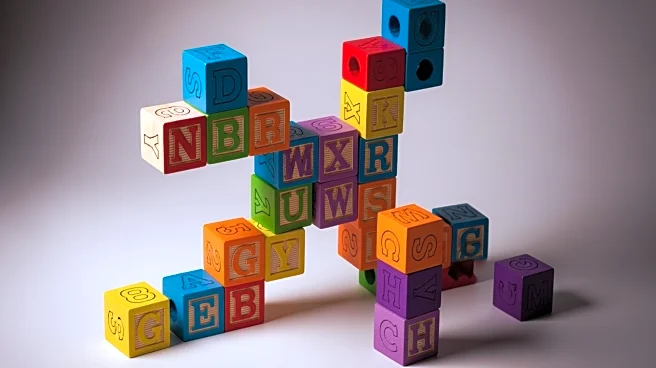What's Happening?
The popular word puzzle game Wordle, originally created by Josh Wardle, continues to engage players with its daily challenges. Puzzle #1581 for October 17 presents an adjective that describes gory movies, with one vowel and repeating letters. The game,
acquired by The New York Times in 2022, allows players six attempts to guess a five-letter word, with color-coded feedback indicating correct and incorrect guesses. The Times' Wordle editor, Tracy Bennett, suggests 'trace' as a reliable starter word based on analysis of millions of games. Wordle remains free to play, though a subscription is required for advanced features.
Why It's Important?
Wordle's ongoing popularity highlights the appeal of simple yet challenging games that stimulate cognitive skills and provide entertainment. The game's acquisition by The New York Times underscores its cultural impact and potential for revenue generation through subscriptions. Wordle's success reflects broader trends in digital gaming and the demand for accessible, engaging content. It also demonstrates the power of viral phenomena in shaping media consumption and influencing business strategies in the digital age.
What's Next?
As Wordle continues to captivate audiences, The New York Times may explore additional features or spin-offs to maintain engagement and attract new subscribers. The game's format could inspire similar word-based puzzles or adaptations for educational purposes. The sustained interest in Wordle may lead to collaborations with other media outlets or platforms, expanding its reach and influence. The game's community-driven nature could foster social interactions and discussions around language and strategy.
Beyond the Headlines
Wordle's simplicity and accessibility highlight the enduring appeal of word games in a digital landscape dominated by complex graphics and narratives. The game's success illustrates the potential for innovation in traditional formats, encouraging developers to explore new ways to engage audiences. Wordle's impact on language learning and cognitive development could be studied further, offering insights into the educational value of gaming.
















